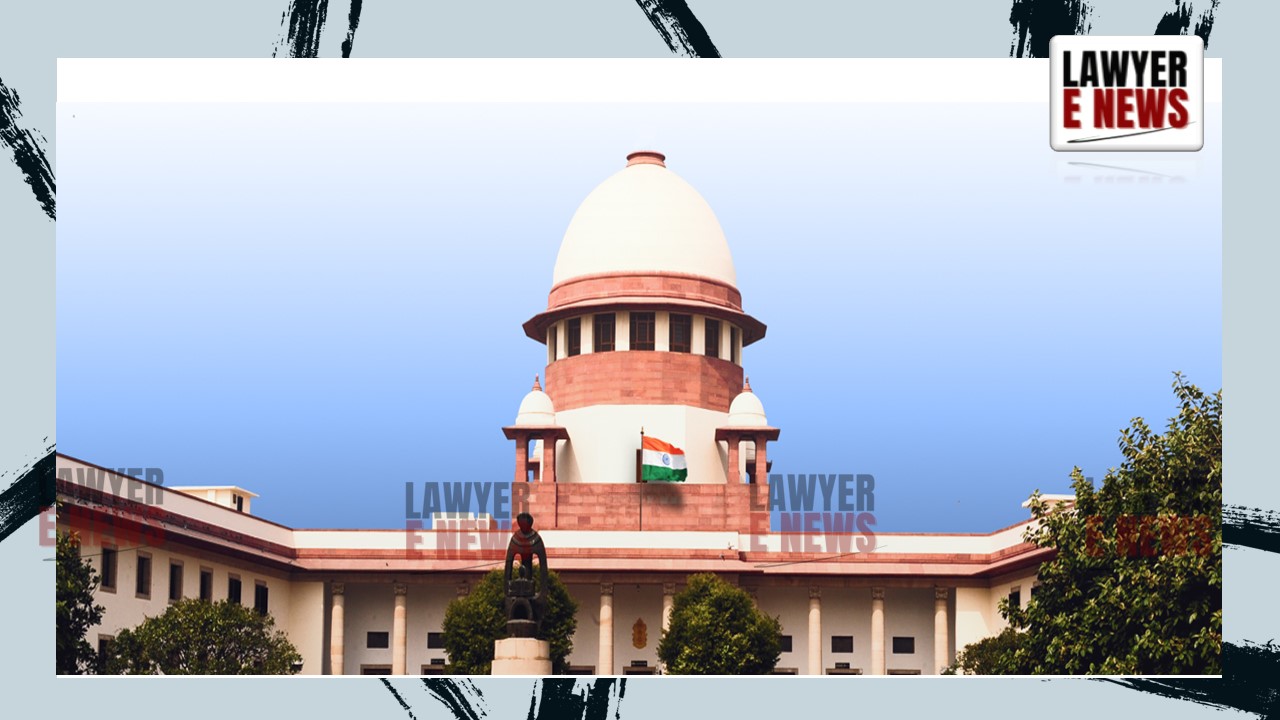-
by Admin
15 February 2026 5:35 AM



Supreme Court of India delivered a significant ruling in Ramratan @ Ramswaroop & Anr. v. State of Madhya Pradesh, addressing the limits of judicial discretion in imposing conditions on bail. The Court ruled that conditions imposed by the Madhya Pradesh High Court on the appellants’ bail, which included the demolition of a wall and the transfer of property possession, were excessive and beyond the scope of criminal proceedings. This judgment clarifies that bail conditions should be limited to ensuring the accused's presence at trial and must not interfere with ongoing civil disputes.
The case originated from an FIR lodged on April 22, 2024, alleging that the appellants, along with others, forcefully entered the complainant's property, demolished a wall, and assaulted his family members. The appellants were charged under various sections of the Indian Penal Code, including Sections 294, 323, 506, 447, 147, 148, and 458. After being denied bail in their first application, they filed a second application, which the Madhya Pradesh High Court granted with conditions that mandated the removal of a wall and the transfer of disputed property keys to the complainant. The appellants challenged these conditions before the Supreme Court, arguing that they exceeded the jurisdictional limits of bail conditions.
The primary issue before the Supreme Court was whether the High Court exceeded its jurisdiction under Sections 437(3) and 439 of the Code of Criminal Procedure (CrPC) by imposing bail conditions unrelated to ensuring the presence of the accused during trial. The Court cited precedent to underscore that bail conditions should be reasonable and relevant to preventing misuse of freedom, ensuring justice, and safeguarding the presence of the accused in trial.
In Parvez Noordin Lokhandwalla v. State of Maharashtra, the Court held that the phrase “any condition” under Section 437(3) CrPC does not grant absolute discretion to courts. Rather, conditions must align with the administration of justice and should not encroach on civil rights or resolve civil disputes.
The Supreme Court observed that the High Court’s order to hand over the possession of the disputed property to the complainant was an overreach, effectively prejudging the rights of parties in a pending civil suit. Referring to Mahesh Chandra v. State of U.P., the Court reiterated that a criminal court handling a bail application should refrain from making orders that affect civil disputes, as such disputes are not within the purview of criminal proceedings.
Justice Mehta, writing for the bench, noted, “Conditions imposed during bail proceedings must strictly pertain to ensuring the presence of the accused at trial. The High Court’s directive to hand over the disputed property to the complainant under a bail order was an unwarranted intervention into a pending civil matter.”
The Supreme Court underscored that bail proceedings should not be used as a tool to deprive individuals of their civil rights. The Court emphasized that the purpose of bail conditions is not to deliver interim relief in civil disputes, but to secure the attendance of the accused. In Sumit Mehta v. State (NCT of Delhi), the Court held that conditions under Section 437(3) CrPC should not be so onerous as to prejudice the accused’s civil rights or create undue hardship unrelated to the criminal case.
The Supreme Court set aside the High Court's conditions requiring the demolition of the wall and the transfer of property possession to the complainant. It held that such conditions were unrelated to the purpose of bail and prejudiced the ongoing civil litigation over the property. The Court allowed the appellants to continue on bail upon furnishing a bond, with the original conditions related to trial attendance remaining in force.
The Court concluded, “None of the observations made in this order shall prejudice the rights of the parties in the pending civil suit. The High Court's order imposing onerous conditions for bail, which encroach upon civil rights, is hereby modified.”
Judicial Restraint in Bail Conditions: This judgment reinforces that courts must exercise restraint when imposing bail conditions and avoid any directions that may impact civil rights or pending civil disputes.
Purpose of Bail Conditions: Bail conditions should solely aim to ensure the presence of the accused at trial and prevent the misuse of liberty. Conditions beyond this scope are deemed excessive and improper.
Non-interference with Civil Proceedings: By reiterating that bail conditions should not affect civil matters, the Supreme Court upholds the principle that criminal and civil jurisdictions should remain distinct.
This judgment serves as a critical reminder for lower courts to exercise caution when imposing bail conditions, limiting them to objectives related to the criminal trial. The Supreme Court has clarified that bail proceedings should not be misused to intervene in civil disputes or prejudice the rights of parties involved in such disputes. By allowing the appeal, the Court has protected the appellants' civil rights while ensuring their compliance with criminal trial requirements.
Date of Decision: October 25, 2024
Ramratan @ Ramswaroop & Anr. v. State of Madhya Pradesh
